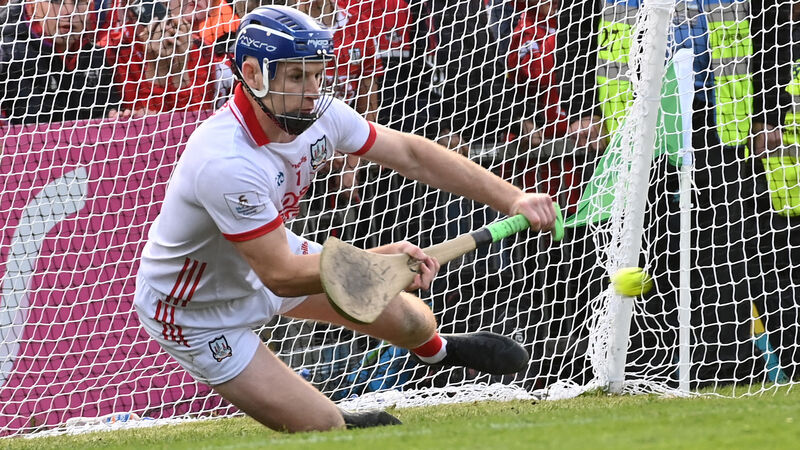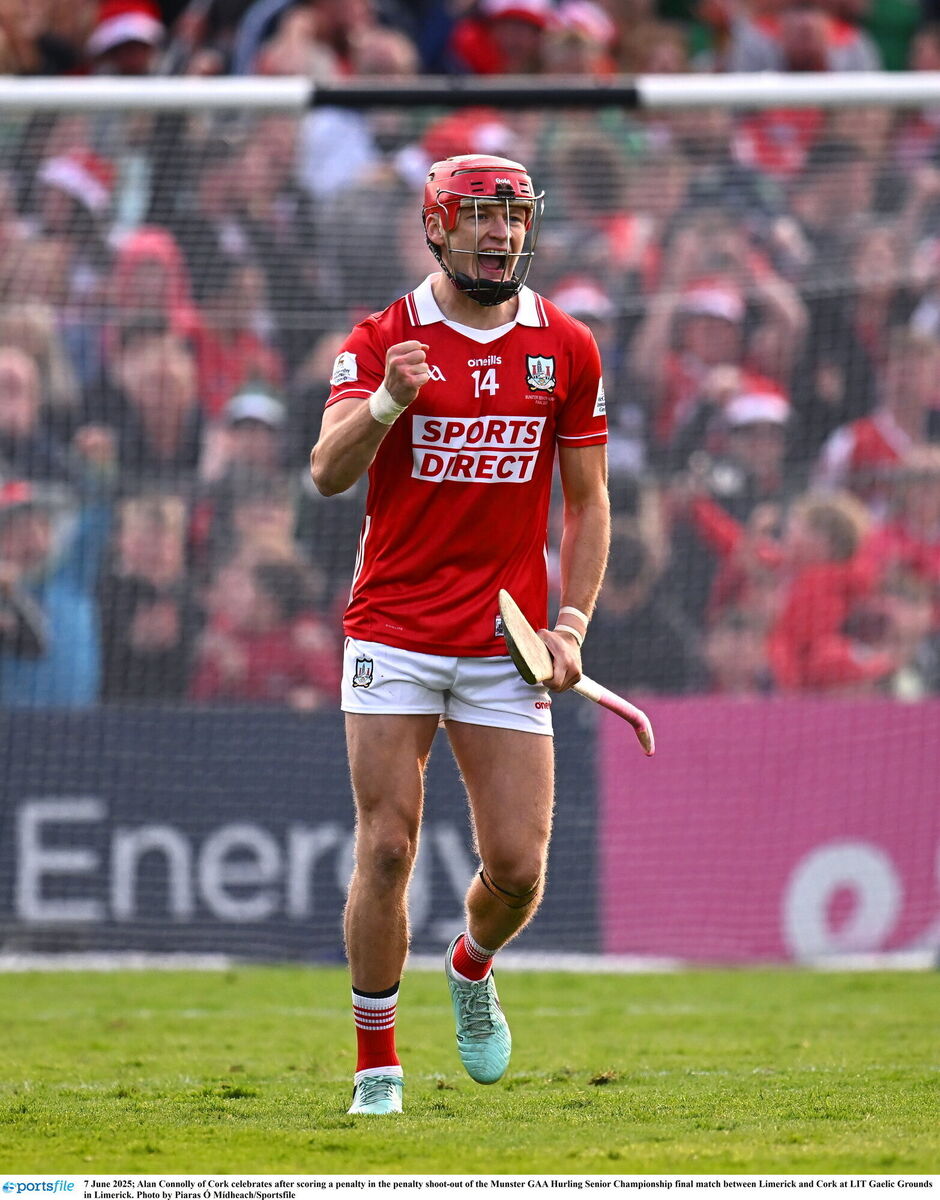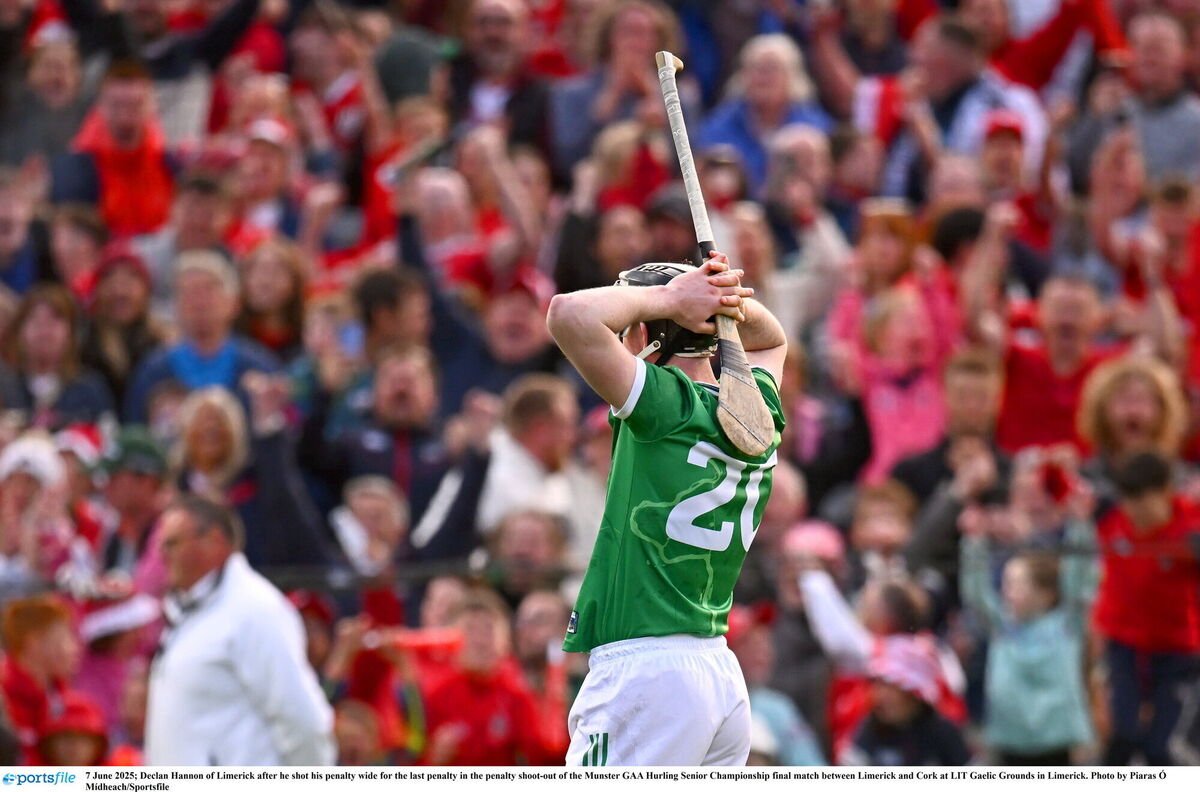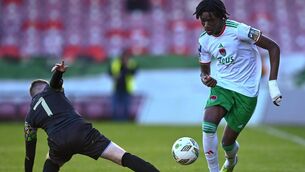Is there a better way to end games than penalties?

Cork 's Patrick Collins saves the penalty from Limerick's Tom Morrissey in the the Munster SHC final at TUS Gaelic Grounds, Limerick. Picture: Eddie O'Hare
Cork’s Munster final victory over Limerick has been made all the more important by events since that famous night at the Gaelic Grounds.
The penalty shoot-out drew plenty of detractors, as if it were some form of invasive species, after it was used to split the Rebels and Treaty after extra-time.
The same tiebreaker has plenty of fans of its inherent drama, too, but the outcry would suggest at least an examination of alternatives is worthwhile.
In a compressed calendar, replay dates won’t always be feasible, even if they are reintroduced for hurling’s provincial finals.
Indeed, this weekend’s All-Ireland semi-finals must be decided on the day, so penalties are possible once again.
What do other sports do to avoid ties?
Penalties are the default, although soccer has tinkered with alternatives over the years to combat extra-time stalemates and shoot-out ‘lotteries’.
The ‘golden goal’ rule was introduced in the 1990s, rewarding teams who scored in extra-time with an instant victory.

Consecutive European Championships, in 1996 and 2000, were decided by golden goals for Germany and France. The Germans also collected the 2003 Women’s World Cup with a golden goal, while Liverpool won the 2001 UEFA Cup in the same manner.
The ‘silver goal’ was trialled in 2002-03. An extra-time goal was no longer a walk-off winner, but the half-time score would be taken as final should one team hold the lead.
The experiments were ultimately binned as they failed to prevent cautious play taking over in extra-time. Penalties are even more common now since the away goals rule was abolished.
Ice hockey continues to implement an overtime winner. That is an indoor sport, though, while the GAA has the added complication of wind advantages skewing matters in such a scenario.
The NFL have been fine-tuning their overtime procedures across the past decade.
The New England Patriots completed a famous Super Bowl comeback against the Atlanta Falcons in 2017 with a first-drive touchdown. That meant the Falcons never received the ball in overtime.
The first-score-wins procedure has been overhauled to allow opposing teams a chance to respond, due to the inherent advantages presented by gaining possession from the coin toss.
Again, the issue in a GAA context would be the wind advantage, which can tilt the balance to a greater extent in favour of one team.
The NBA play extra five-minute periods until a winner is decided. The demands on amateur players were a factor in the GAA removing the second period of extra-time from their rules.
Due to the frenzied nature of basketball scoring, ties are less of a common occurrence than the GAA, where the likes of Dublin and Meath can go to three replays, two including extra-time, to settle the most famous provincial preliminary-round fixture of all time.
Munster have felt the sting of place-kicking competitions in losing quarter-finals to Toulouse in the 2022 Champions Cup and the Sharks in this year’s URC.
The GAA initially introduced a free-taking competition instead of penalties, with Limerick defeating Clare in the 2018 League quarter-final 7-6 at the Gaelic Grounds. The Gaelic football conversion rate was significantly lower when Meath edged Longford 2-1 after 10 kicks earlier that year.
Those free-taking competitions are significantly less dynamic than penalties, though, with no face-off between shooter and keeper. In hurling, they can become particularly repetitive as players trade pucks until it all comes down to one mistake.
In netball, if a match remains tied after overtime, teams play on until one side leads by two goals. It’s similar, in essence, to the end of a tennis tiebreaker, which must be decided by two clear points regardless of the target score.

Wimbledon and other tournaments have set an upper limit on the endless tiebreakers of years previous, which saw John Isner and Nicolas Mahut play out an 11-hour match across three days.
The final set ended 70-68 in favour of the fatigued American, who paid for his exertions when dumped out in the next round Equestrian/kho-kho Showjumping introduces a different element for jump-offs as competitors race against the clock to split ties.
It's a similar case, we're informed, in the Indian sport of kho-kho, where both teams are permitted to score one final point and the fastest time wins.
In the GAA, timekeeping would be the traditional issue.
The hooter would appear to sort that. Tactical fouling would more likely replace that as the primary problem.
Penalties may remain the least bad option. But perhaps an enhanced version could be tested. Anyone for a game of backs and forwards?
First to three — or fastest to three — wins?







 App?
App?







